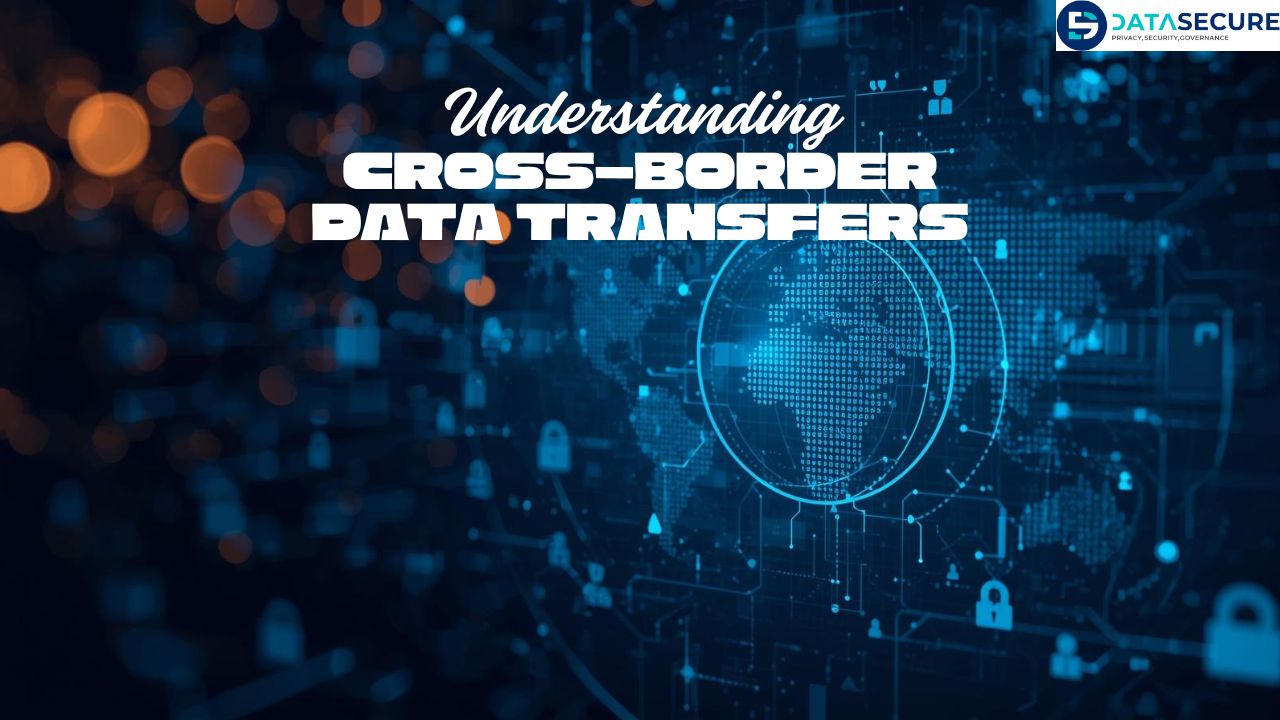Introduction
In an era defined by globalization and digital interconnectivity, the movement of data across borders has become indispensable to commerce, communication, and innovation. Multinational corporations, cloud service providers, and even small enterprises routinely engage in transnational data flows, enabling seamless business operations and access to global markets. However, this borderless exchange of information also raises significant concerns about privacy, security, and state sovereignty over data. The growing tension between the need for free data movement and the demand for stringent data protection has prompted jurisdictions worldwide to enact distinct regulatory frameworks, each reflecting their socio-political priorities and legal traditions.
India, as one of the world’s fastest-growing digital economies, stands at a crucial juncture in shaping its cross-border data transfer policy. The recently enacted Digital Personal Data Protection Act, 2023 (DPDP Act) marks a pivotal shift from India’s earlier, restrictive approach toward a more balanced regime, one that seeks to harmonize individual privacy rights with economic growth and international interoperability. Yet, aligning India’s framework with global privacy regimes such as the EU’s General Data Protection Regulation (GDPR), the US’s sectoral model, and emerging Asia-Pacific data governance norms remains a complex task. Divergent standards for consent, adequacy, and data localization present challenges to achieving regulatory convergence.
Understanding Cross-Border Data Transfers

Cross-border data transfers refer to the movement of personal information, such as names, addresses, or financial details, across national boundaries to enable seamless global operations. In today’s interconnected economy, these transfers are integral to modern commerce, allowing businesses to function efficiently across jurisdictions. However, they also raise critical issues of privacy, compliance, and data security. India’s Digital Personal Data Protection Act, 2023 ( DPDP Act) governs such transfers by permitting data flows to most nations while restricting those on a government-notified prohibited list, emphasizing the need for strategic planning and compliance oversight. Secure data handling is essential not only for meeting legal requirements but also for preserving business continuity and customer trust. Complementary frameworks, such as the Reserve Bank of India’s data localization norms, ensure that sensitive financial information remains safeguarded even in transnational exchanges. To effectively manage these obligations, organizations must obtain explicit consent, assess transfer destinations, implement strong technical safeguards like encryption, and conduct regular audits. A well-structured compliance framework under the DPDP Act thus allows businesses to balance international data mobility with India’s regulatory expectations, strengthening both privacy protection and global competitiveness.
Scope and Application of the DPDP ACT

The Digital Personal Data Protection Act, 2023 ( DPDP Act) establishes a comprehensive framework governing the processing of digital personal data of individuals, referred to as Data Principals. It applies to all personal data in digital form, whether originally collected digitally or converted from non-digital formats, and adopts an expansive definition of personal data as any information through which an individual can be identified. The Act also extends protection to vulnerable groups: in the case of minors below eighteen years, the term Data Principal includes parents or lawful guardians, and for persons with disabilities, it extends to their legal representatives. Significantly, the DPDP Act has extra-territorial application, covering entities outside India that process personal data in connection with offering goods or services to individuals located within India. This means that foreign businesses handling Indian users’ data must comply with the Act’s requirements.
The DPDP Act also introduces a controlled mechanism for cross-border data transfers, empowering the central government to restrict transfers to jurisdictions included on a “negative list.” While transfers to most countries remain permissible, data cannot be sent to those deemed non-compliant with India’s privacy standards. Certain exemptions exist, for instance, processing for judicial functions, legal claims, criminal investigations, or corporate restructuring. The Act further clarifies that it coexists with stricter sectoral regulations, such as those issued by the Reserve Bank of India, ensuring that higher protection standards prevail. In essence, the DPDP Act’s broad scope and layered application reflect India’s attempt to balance privacy protection with global digital trade, aligning its data governance model with evolving international norms.
Comparative Perspective: India and Global Privacy Regimes:
When compared with leading international privacy frameworks, India’s Digital Personal Data Protection Act, 2023 ( DPDP Act) reflects both convergence and divergence in approach. Much like the European Union’s General Data Protection Regulation (GDPR), the DPDP Act is grounded in the principles of consent, purpose limitation, and accountability. Both frameworks emphasize individual control over personal data and establish mechanisms for government oversight. However, while the GDPR permits cross-border data transfers primarily to countries offering “adequate” protection or through safeguards such as Standard Contractual Clauses (SCCs), India adopts a “negative list” model, where transfers are generally allowed except to specifically restricted jurisdictions. This approach offers greater flexibility but less transparency regarding adequacy standards. In contrast, the United States follows a more sectoral and self-regulatory model, focusing on contractual safeguards rather than comprehensive federal privacy legislation. Additionally, data localization requirements under the DPDP Act and sector-specific mandates by the Reserve Bank of India stand in sharper contrast to the EU and US systems, which prioritize data mobility over territorial restrictions. Despite these differences, India’s growing emphasis on interoperability, accountability, and risk-based compliance demonstrates an evolving effort to harmonize its domestic framework with global privacy norms while preserving regulatory sovereignty.
Risk Management in Data Transfers

Effective risk management is central to ensuring secure and compliant cross-border data flows. A proactive due diligence approach enables organizations to identify potential vulnerabilities, align with India’s data protection framework, and maintain stakeholder confidence. The process begins with Data Transfer Impact Assessments (DTIAs), a structured evaluation of what personal data is being shared, the level of sensitivity involved, the legal environment of the recipient country, and the safeguards in place for data transit and storage. Regular DTIAs not only ensure ongoing compliance but also help businesses adapt swiftly to evolving regulations or new market operations.
In addition to procedural due diligence, organizations must adopt technical and organizational security controls. Encryption, both in transit (using SSL/TLS protocols) and at rest, serves as a critical layer of defense against unauthorized access. Access controls based on user roles, along with periodic internal and external audits, further enhance data integrity and accountability. Even when certain transfers qualify for exemptions under the DPDP Act, such as for legal proceedings or investigations, maintaining these safeguards is essential for upholding trust and avoiding enforcement risks.
Oversight by the Data Protection Board (DPB) adds another layer of assurance. The DPB is empowered under the DPDP Act to monitor compliance, address complaints, and facilitate secure international transfers. It is also tasked with aligning India’s framework with global interoperability standards through mechanisms such as Standard Contractual Clauses (SCCs) and Binding Corporate Rules (BCRs). SCCs serve as pre-approved agreements outlining data protection responsibilities between transfer parties, while BCRs allow multinational corporations to maintain consistent data protection practices across jurisdictions. Together, these instruments ensure that Indian data enjoys adequate protection abroad.
Moreover, sector-specific regulations, particularly those issued by the Reserve Bank of India (RBI), reinforce India’s data governance framework. The RBI’s Payment Data Localization Framework mandates that all payment-related data be stored within India, ensuring regulatory oversight and resilience in financial systems. Telecom and financial entities are further required to maintain local copies of sensitive records and undergo regular audits. By integrating these compliance measures, risk assessments, encryption, DPB oversight, and adherence to RBI mandates, organizations can manage cross-border data transfers responsibly, minimize legal exposure, and strengthen their global operational credibility.
Conclusion
The evolving landscape of cross-border data transfers reflects the growing need to balance privacy protection, regulatory compliance, and economic globalization. India’s Digital Personal Data Protection Act, 2023 ( DPDP Act) represents a significant step toward building a privacy framework that safeguards individual rights while promoting responsible data mobility. By empowering the government to regulate transfers through a “negative list” mechanism, establishing oversight through the Data Protection Board (DPB), and complementing sector-specific mandates such as those of the Reserve Bank of India, the DPDP Act lays a structured foundation for secure digital exchange.
However, the challenges of aligning India’s data protection framework with diverse international standards, like the GDPR and other global regimes, remain considerable. Effective risk management, technical safeguards, and compliance audits are therefore indispensable tools for businesses seeking to operate across borders without compromising data integrity. As India continues to refine its data governance ecosystem, collaboration between policymakers, regulators, and private entities will be key to achieving interoperability with global systems. Ultimately, reconciling Indian law with international privacy regimes will not only protect citizens’ data but also strengthen India’s position as a trusted participant in the global digital economy.
We at Data Secure (Data Privacy Automation Solution) DATA SECURE - Data Privacy Automation Solution can help you to understand EU GDPR and its ramificationsand design a solution to meet compliance and the regulatoryframework of EU GDPR and avoid potentially costly fines.
We can design and implement RoPA, DPIA and PIA assessments for meeting compliance and mitigating risks as per the requirement of legal and regulatory frameworks on privacy regulations across the globe especially conforming to GDPR, UK DPA 2018, CCPA, India Digital Personal Data Protection Act 2023. For more details, kindly visit DPO India – Your outsourced DPO Partner in 2025 (dpo-india.com).
For any demo/presentation of solutions on Data Privacy and Privacy Management as per EU GDPR, CCPA, CPRA or India DPDP Act 2023 and Secure Email transmission, kindly write to us at info@datasecure.ind.in or dpo@dpo-india.com.
For downloading the various Global Privacy Laws kindly visit the Resources page of DPO India - Your Outsourced DPO Partner in 2025
We serve as a comprehensive resource on the Digital Personal Data Protection Act, 2023 (Digital Personal Data Protection Act 2023 & Draft DPDP Rules 2025), India's landmark legislation on digital personal data protection. It provides access to the full text of the Act, the Draft DPDP Rules 2025, and detailed breakdowns of each chapter, covering topics such as data fiduciary obligations, rights of data principals, and the establishment of the Data Protection Board of India. For more details, kindly visit DPDP Act 2023 – Digital Personal Data Protection Act 2023 & Draft DPDP Rules 2025
We provide in-depth solutions and content on AI Risk Assessment and compliance, privacy regulations, and emerging industry trends. Our goal is to establish a credible platform that keeps businesses and professionals informed while also paving the way for future services in AI and privacy assessments. To Know More, Kindly Visit – Your Trusted Partner in AI Risk Assessment and Privacy Compliance | AI-Nexus
